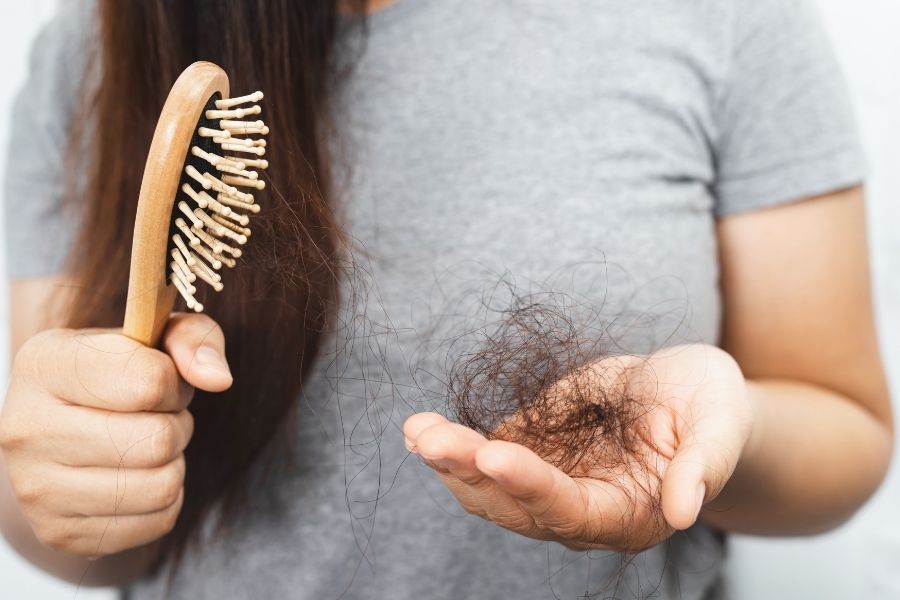
Hair growth happens in a cycle. Each strand of hair grows for 2 to 6 years, rests, and then falls out. New hair then starts to grow in its place. It is normal to lose 50 to 100 strands of hair a day. These are replaced by new hairs which grow back in the same follicles (part of the skin where hair grows from). Hair loss becomes a problem when new hair does not grow back or too much hair is lost. It usually starts slowly and may be patchy or affect the whole scalp. Hair loss can affect anyone - men, women or children.
Causes of too much hair loss
- Androgenic alopecia (male or female pattern baldness) is the most common cause of hair loss in men and usually runs in the family.
- Male pattern baldness normally begins at the temples. It can result in a receding hair line and baldness on the top of the head.
- In female pattern baldness, hair thins throughout the scalp. The crown is affected the most, whereas the front hair line is usually not affected.
- Hormonal changes – Too much or too little thyroid hormone, hormonal changes during menopause and after giving birth can lead to hair loss.
- Skin diseases that lead to injury of hair follicles
- Infections of the scalp e.g. fungal infection
- Medicines – Certain medicines used for high blood pressure, heart problems, depression, blood thinning, birth control and cancer
- Stress on the body - Serious illness, surgery, pregnancy, sudden weight loss
- Compulsive pulling of hair
- Hairstyles and hair treatments
- Tight pull on the hair and may cause hair loss
- Hot oil and chemical treatments can cause injury to hair follicles - Lack of nutrients such as iron, protein, biotin, omega-3 fatty acids, zinc
When to see a doctor
- You are losing hair in an unusual pattern
- There are bald patches on your beard or eyebrows
- You are losing hair very quickly or at a young age (in your teens or twenties)
- Scalp is red, scaly, itchy or abnormal
- You have acne, facial hair, or an abnormal menstrual cycle
- You are a woman and have male pattern baldness
- You have been gaining weight or have muscle weakness, are unable to stand cold temperatures or lack energy
- You notice hair loss after you start taking a new medicine
You can prevent hair loss
- Keep a healthy lifestyle – Exercise regularly and eat a balanced diet.
- Wash hair regularly to keep hair and scalp clean and prevent infections
- Use suitable hair products that are gentle on the scalp. Stop using a new hair product if you notice more hair loss than usual.
- Avoid using chemical treatments on the hair too often e.g. hair dyeing
- Avoid tying your hair too tightly
Updated Dec 2022.
This article does not take the place of talking to your doctor or pharmacist. People with special health needs such as babies, children below 12 year old, elderly and pregnant ladies should see a doctor instead of self-treatment. Always read the instructions and warnings on the package before taking any medicine
.png)



















































